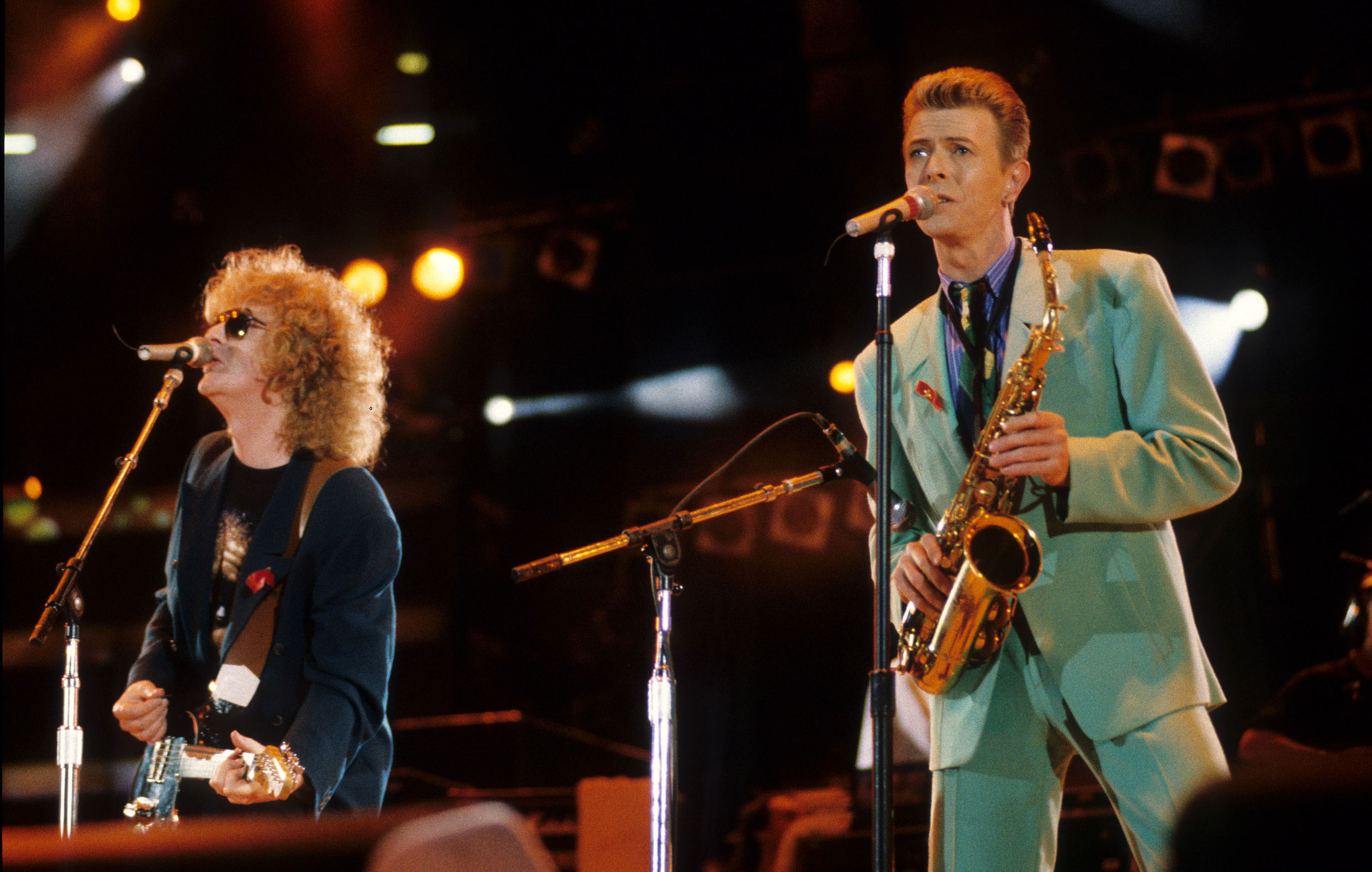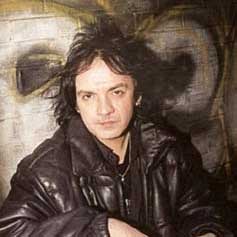You can trust Louder
Even at what he calls “the exalted age of seventy-seven”, Ian Hunter still finds it impossible to take the easy career path. After all, this is the man who quit Mott The Hoople when they were about to break through in America, then when the band reunited 35 years later, made sure he got his latest solo album out before dates were announced. Now, in the same month that behemoth 30-disc retrospective Stranded In Reality is set to land, he’s made damn sure he releases another new set that can hold its own against anything in the mega-box.
Fingers Crossed shows Hunter still rocking and railing defiantly against modern times and trends as he continues mining the ferociously rich songwriting streak that started with 2001’s Rant and continued through 2007’s Shrunken Heads, 2009’s Man Overboard and 2012’s When I’m President.
To put it in some perspective, Hunter has written and recorded more exhilarating, evocative or provocative songs since he turned 60 than any of his superstar contemporaries have managed in that time. He’ll always be a few years older than his key early influences Dylan and the Stones, but he’s overtaken both in keeping the songwriting volcano regularly active.
Hunter modestly credits his ongoing rejuvenation to the Rant Band, put together by John Mellencamp guitarist Andy York, who came along at just the right time. After floundering in the late 80s, Hunter was shaken severely by the 1993 death of his long-time friend and collaborator Mick Ronson. But with a stellar new band behind him, his battered muse reignited to rage against a world going corporate, social media-crazy or insane, while allowing distant memories to provide humorous or poignant anecdotes. He even allowed himself to reflect on getting older.
At first, Fingers Crossed seems more upbeat than recent works, with spirited mid-tempo rockers such as Bow Street Runners (inspired by London’s 18th-century first police force), White House (porno mag rather than Presidential seat) and Ghosts, which recalls the day Hunter and the band jammed at Sun Studios in Memphis.
- The Story Behind The Song: Roll Away The Stone by Mott The Hoople
- Mott The Hoople: "We didn't need make-up, just give us the spotlight"
- Ian Hunter: Strings Attached
- Ian Hunter: The Artful Dodger
“Writing the song is not so much a problem as the actual idea,” Hunter told this writer. He no longer feels qualified to write teenage love songs so grabs inspiration from diverse sources, such as the dream-invading Greek god on Morpheus. The title track’s striking opening line, ‘I was pressed into service, through no fault of my own,’ just came to him and, after some research, Hunter sculpted the album’s deepest emotional blockbuster, putting himself in the desperate place of a kid press-ganged into the Navy in the 1750s, whose fingers are crossed to stay alive.
Dandy is the track attracting most attention. Hunter was writing a song called Lady when he heard Bowie had died, so he turned it into his tribute to the man who rescued Mott in 1972 by giving them All The Young Dudes, the era’s immortal anthem. Hunter hadn’t seen Bowie for 40 years so sings from the perspective of a teenage Ziggy fan, beautifully evoking the time when Bowie turned grim, early-70s Britain into dazzling technicolour.
Sign up below to get the latest from Classic Rock, plus exclusive special offers, direct to your inbox!

Speaking as another teenage Ziggy fan, he’s spot on, while the music swings beautifully on the period chandeliers of stately guitars and woozy chorales. The song can also be seen as a fond farewell to Ronson and Buffin, Mott’s tragic drummer who died the week after Bowie.
If Bowie gave Hunter the confidence to steer Mott through the hits that started with Honaloochie Boogie and opened up his solo career, the trials and tribulations of the subsequent 42 years have put him in a solid position to dish out sage advice and put cockier elements in their place, which he does on the opening That’s When The Trouble Starts and closing Long Time.
The former is a loose rocker that sees Hunter bluntly addressing the kind of upstart young rocker who can’t handle stardom (‘You got no soul, you got no passion, who cares it’s going out of fashion?’). The romping Long Time sees Hunter recall discovering music and its shark-infested business, pointing out how fortune and misfortune are forever entwined.
On the slow-burning You Can’t Live In The Past, Hunter declares with righteous defiance, ‘You can never go back, those days are gone, you gotta move on.’ And why should he want to rely on his past when he’s having the time of his life giving maturity a good name in a business once built on youth? On this evidence, nothing’s going to touch him in these golden years.
Ian Hunter - The 10 Songs That Changed My Life
Kris Needs is a British journalist and author, known for writings on music from the 1970s onwards. Previously secretary of the Mott The Hoople fan club, he became editor of ZigZag in 1977 and has written biographies of stars including Primal Scream, Joe Strummer and Keith Richards. He's also written for MOJO, Record Collector, Classic Rock, Prog, Electronic Sound, Vive Le Rock and Shindig!


